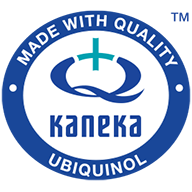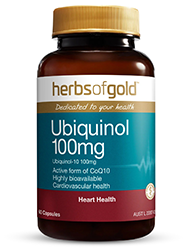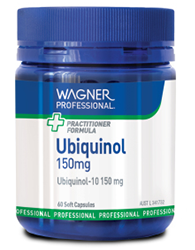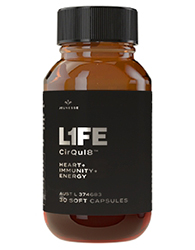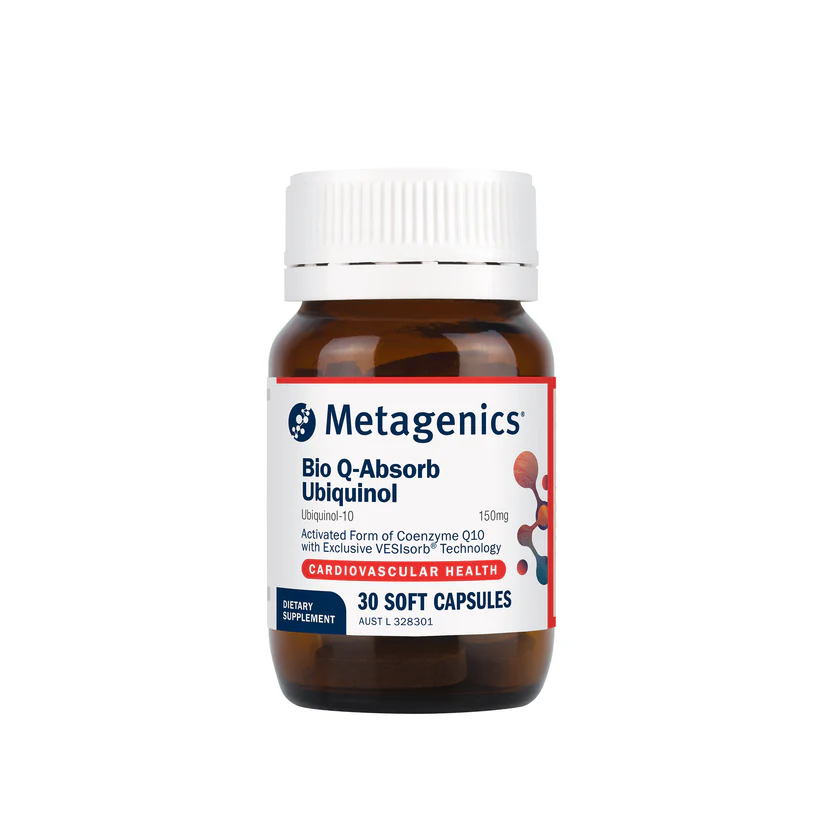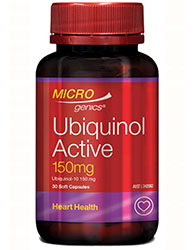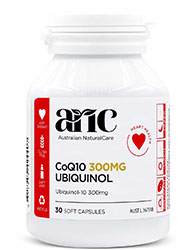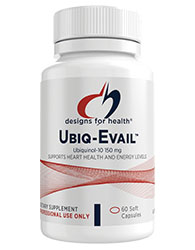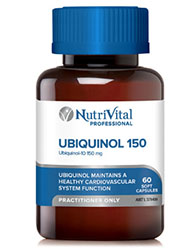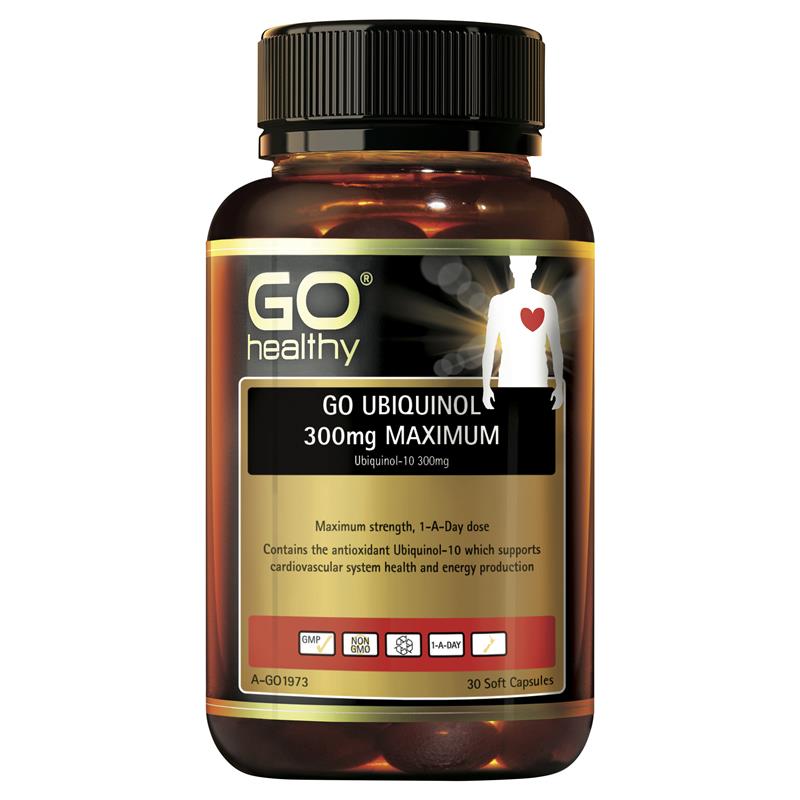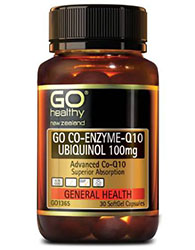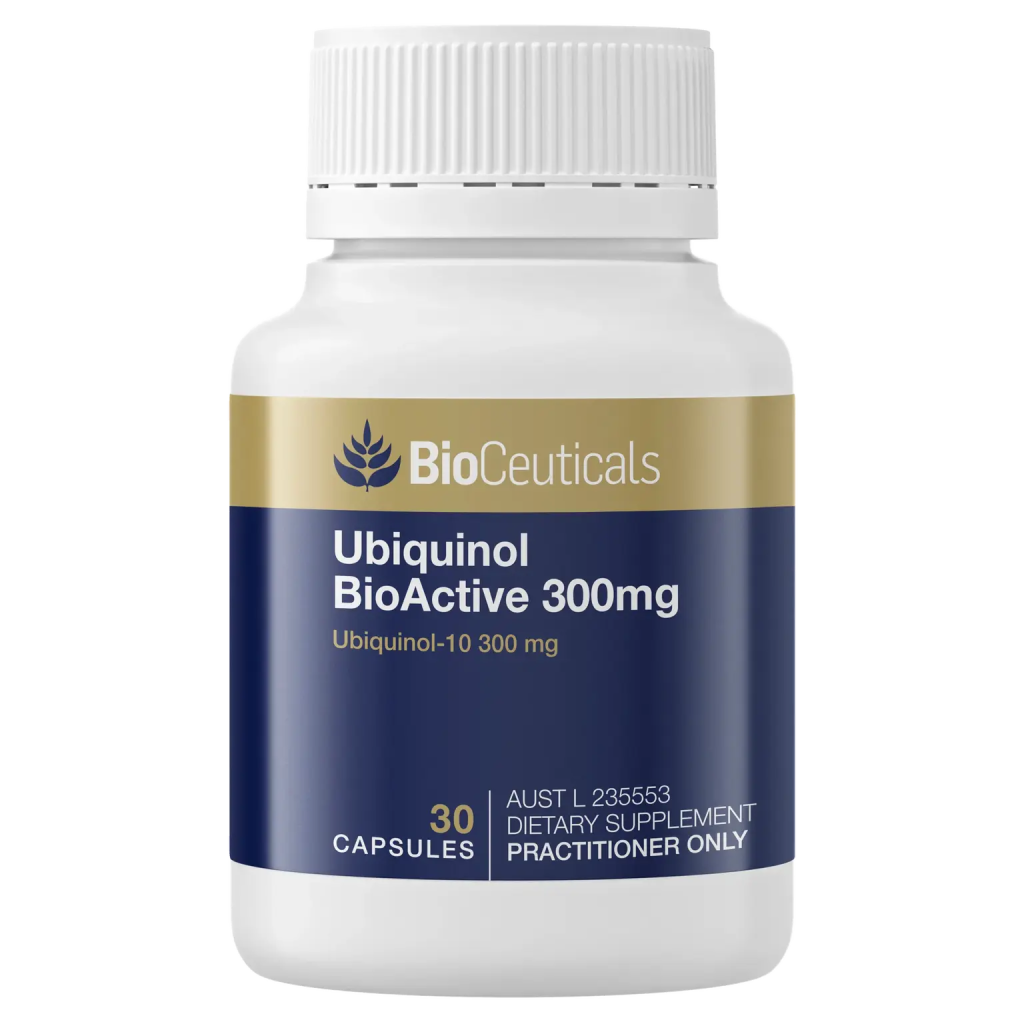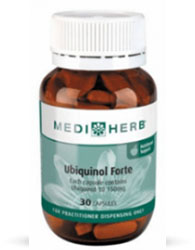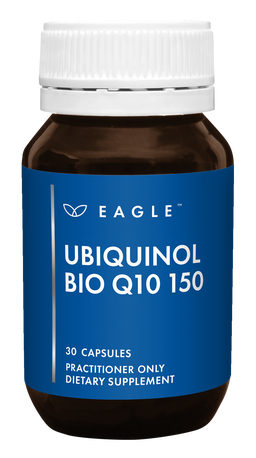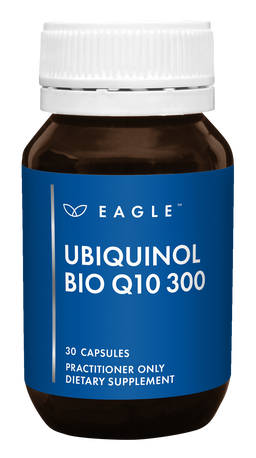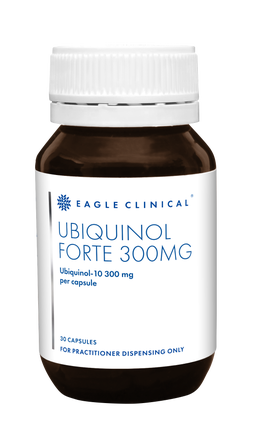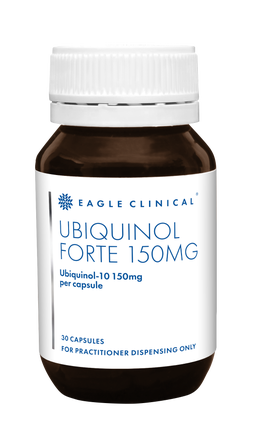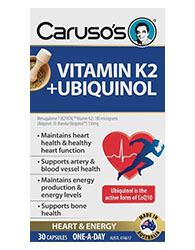
Heart Health
Ubiquinol for Hearth Health
Ubiquinol promotes heart health by helping to provide the cellular energy needed to keep the heart pumping well. It is critical in the production of ATP, the body’s primary fuel. This fuel is used for three basic yet critical heart functions:
- Contraction – to keep the heart pumping consistently
- Relaxation – to allow the heart to rest between beats
- Molecular Synthesis – to maintain the heart’s structure by building important cellular components
Energy demands of the heart are among the highest in the body, requiring significant amounts of cellular energy to function. Without enough ATP in the “energy pool”, the heart’s function would be compromised.
As Ubiquinol is a powerful antioxidant, it helps reduce the oxidisation of small dense LDL cholesterol particles in the blood and support healthy cholesterol levels.
Ubiquinol helps in the maintenance of healthy blood lipids
Australia has the third highest use of cholesterol-lowering medications in the developed world.1
Statin drugs are the most common class of these medications. They work by inhibiting the body’s production of cholesterol, but in doing so, also deplete natural levels of CoQ10 and other essential vitamins and nutrients.
Since CoQ10 and cholesterol are both synthesised from the same substance – mevalonate – statin drugs that inhibit the formation of cholesterol have been shown to also inhibit the body’s synthesis of CoQ10.2 In fact, the use of statins can decrease the body’s synthesis of CoQ10 by as much as 40 percent.3
The most common side effect of statins is muscle pain. Studies have shown that statin-induced deficiency of CoQ10 may be related to muscle pain.4-5
Research shows supplementing with CoQ10 may help to reduce mild-to-moderate statin-related muscular pain.6 Another study demonstrated that CoQ10 supplementation over a six-month period statistically significantly reduced muscle pain by 53.8 percent and increased CoQ10 levels by more than 194 percent.7
Ubiquinol is the active and the most readily bio-available form of CoQ10. Thus, the potential for Ubiquinol to act as a direct response to help reduce statin-related muscle pain is maximised.
Ubiquinol may support healthy LDL cholesterol levels in healthy people
The Australian Heart Foundation reports that 33 percent of Australians have high total cholesterol8 (levels higher than 5.5 mmol/L) – quite a significant number.
Cholesterol is an essential type of fat that is carried in the blood. All cells in the body need cholesterol for internal and external membranes, however, too much cholesterol in the blood can lead to health issues.9
Many factors can affect cholesterol including heredity, age, and gender. But many are preventable as well as controllable. For example, diet, weight, and exercise are factors that you can control and can also be used to prevent cholesterol from becoming a health issue.
Small studies10,11 have shown that because Ubiquinol is a powerful antioxidant, it may help to prevent the oxidation of small dense LDL cholesterol particles12 and support healthy cholesterol levels.
One of the studies13 showed that two weeks’ supplementation with 150mg Ubiquinol per day in healthy men reduced LDL cholesterol levels by 12 percent.
Speak to your health professional about your cholesterol levels to determine whether medication or supplementation with Ubiquinol could benefit you.
- OECD (2015), Health at a Glance 2015: OECD Indicators, OECD Publishing, Paris. http://dx.doi.org/10.1787/health_glance-2015-en
- Passi S, Stancato A, Aleo E, Dmitrieva A, Littarru GP. Statins lower plasma and lymphocyte ubiquinol/ubiquinone without affecting other antioxidants and PUFA. Biofactors. 2003;18(1-4):113-24.
- Ghirlanda, et al., Evidence of plasma CoQ10-lowering effect of HMG-COA reductase inhibitors: a double-blind, placebo-controlled study, Journal of Clinical Pharmacology. 1993 Mar; 33(3):226-229.
- Harper CR, Jacobson TA: The broad spectrum of statin myopathy: from myalgia to rhabdomyolysis. Curr Opin Lipidol, 2007; 18: 401–8
- Wyman M, Leonard M, Morledge T: Coenzyme Q10: a therapy for hypertension and statin-induced mylgia? Cleve Clin J Med, 2010; 77: 435–42
- Marcoff L, Thompson PD: The role of coenzyme Q10 in statin-associated myopathy: a systematic review. J Am Coll Cardiol, 2007; 49: 2231–37
- Skarlovnik A, Janic M, Lunder M, Turk M, Sabovic M. Coenzyme Q10 Supplementation Decreases Statin-Relted Mild-to-Moderate Muscle Symptoms: A Randomized Clinical Study. Med Sci Monit, 2014; 20:2183-2188.
- Zlatohlavek, L, et al. The effect of coenzyme Q10 in statin myopathy. Neuroendocrinol Letters, 2012; 33: 98-101
- National Heart Foundation of Australia. 2012. High cholesterol statistics. [ONLINE] Available at: https://www.heartfoundation.org.au/about-us/what-we-do/heart-disease-in-australia/high-cholesterol-statistics. [Accessed 15 July 2017].
- Black, P.H et al., 2002. Stress, inflammation and cardiovascular disease. Journal of Psychosomatic Research, [Online]. Volume 52, Issue 1, 1-23. Available at: https://www.ncbi.nlm.nih.gov/pubmed/11801260 [Accessed 14 July 2017].
- Schmelzer, C., Niklowitz, P., Okun, J. G., Haas, D., Menke, T. and Döring, F. (2011), Ubiquinol-induced gene expression signatures are translated into altered parameters of erythropoiesis and reduced low density lipoprotein cholesterol levels in humans. IUBMB Life, 63: 42–48.
- Thomas, S.R., 1996. Cosupplementation With Coenzyme Q Prevents the Prooxidant Effect of α-Tocopherol and Increases the Resistance of LDL to Transition Metal–Dependent Oxidation Initiation. Arteriosclerosis, Thrombosis, and Vascular Biology, [Online]. Volume 16, Issue 5, 687-696. Available at: http://atvb.ahajournals.org/content/16/5/687.long [Accessed 15 July 2017].
- St-Pierre, A.C. et al., 2005. Low-Density Lipoprotein Subfractions and the Long-Term Risk of Ischemic Heart Disease in Men: 13-Year Follow-Up Data From the Que´bec Cardiovascular Study. Arteriosclerosis, Thrombosis, and Vascular Biology, [Online]. Volume 25, Issue 3, 553-559. Available at: http://atvb.ahajournals.org/content/25/3/553.long [Accessed 15 July 2017].
